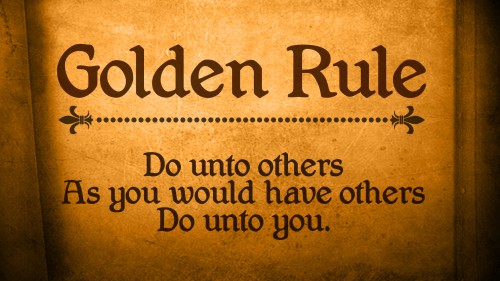The so-called golden rule has had many forms over History. One of the most well-known form was given by Jesus of Nazareth and reads “do unto others as you would have them do unto you”, which we could interpret as “treat others how you’d like to be treated”.
There has been lots of debate on whether that’s actually a good idea. Cultural differences and context make a good case not to follow the golden rule. As important as that debate might be, there’s a much more powerful debate to be had.
At the centre of the golden rule is a sense of parity or equity between ourselves and those around us. Doing to others what we like them to do to us is all about the sentiment that both us and others are equally worthwhile and deserve the same care, treatment and respect.
However, there’s a much more powerful way of looking at how we engage with others and that is linked with a fundamental asymmetry we create ourselves.
You see, we all want to be judged for our intentions, but we judge others by their actions, not their intentions.
When it comes to judging, we fall very short of the golden rule and that is because we don’t do to others what we expect them to do to us.
How many times have you said something that came out not quite in the right way and followed with “that’s not what I meant”, and expect everything to be fine?
However, when someone says something we don’t like, we can be very quick at becoming upset or angry at them. That is because we are judging their words or actions and making assumptions about what they meant, rather than judging their actual intentions.
This double standard we apply is a big source of conflict and misunderstandings in the workplace and in life. It’s impossible to have a clear view of what others’ intentions are, we can only know our own.
But there is one thing you can do to mitigate this common problem: you can become curious. If you become curious about what’s really going on, you might just allow yourself to understand before you judge. You might just allow an opportunity for others’ intentions to surface before your judgement bulldozes through a relationship.
And then you’ll be closer to a better golden rule: judge others as you like to be judged, by their intentions.

Leave A Comment